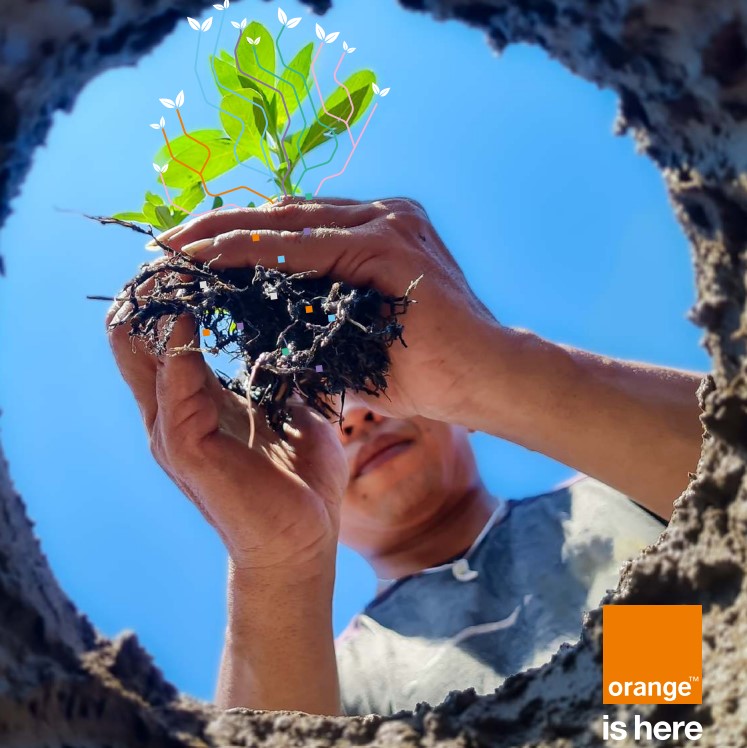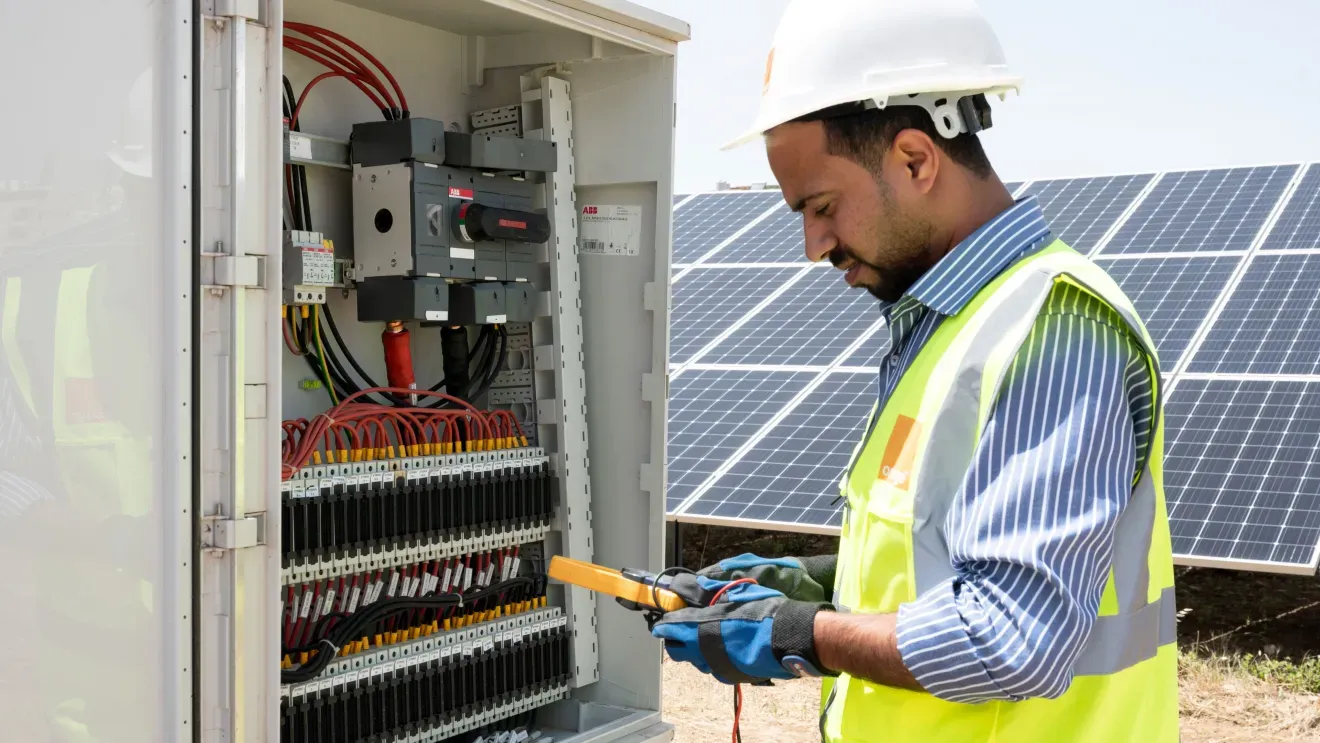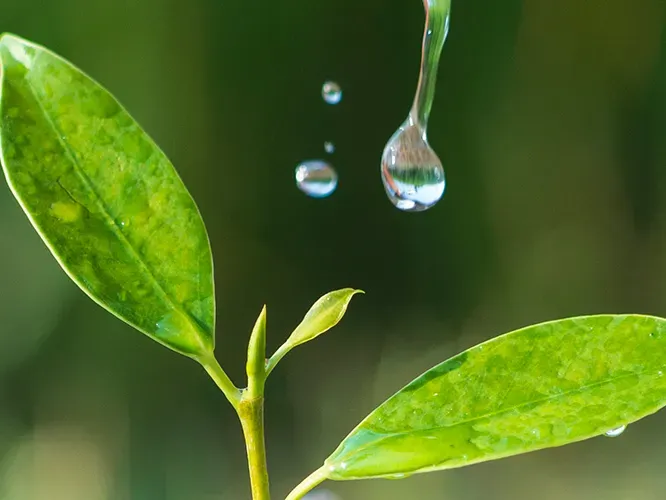At Orange, the transition to renewable energies is a major priority. That’s why we’re launching numerous initiatives in Africa and the Middle East to help reduce our CO2eq emissions to reach our target of net zero by 2040. These include moving to solar to power our infrastructure, mini-grid solutions, and solar kits for companies and communities.
"Cultivating impact": Orange Africa and Middle East 2024 Corporate Social Responsibility Report
Orange Africa and Middle East publishes ‘Cultivating Impact’, its 2024 corporate social responsibility report. Through its operational activities and its #OrangeEngageforChange programme, which involves its employees in projects with a strong social impact, Orange Africa and Middle East affirms its ambition: to connect, include and sustainably transform the societies and territories served by the company.
The transition to renewable energy for all in Africa and the Middle East
In Africa and the Middle East, where electricity is an essential issue, we resell surplus energy generated by our own solar farms to surrounding communities at an affordable price. This essentially converts our telecom equipment into mini grids (small solar farms), where consumption and payments can be controlled remotely.
We have also designed a range of services so that everyone can adapt their electricity to their needs and budget, such as our popular solar kit offer.
We’re also developing various renewable energy projects that enable us along with Energy Service Company (ESCO) partners to equip our telecom towers with solar systems. Today, 10 Orange countries in the Africa and Middle East region are benefiting: Burkina Faso, Cameroon, Central African Republic, Côte d'Ivoire, Guinea Bissau, Guinea Conakry, Liberia, Madagascar, Senegal and Sierra Leone.
In Morocco and Tunisia, we’ve launched major solarization programs along with partners. We now produce 3.4 MWp of solar energy to supply data centers in seven of our countries in the region. More than 10,000 sites, or nearly 20% of our sites in Africa and the Middle East, are solarized.
These programs, which are extending to other countries this year, reduce fuel consumption by up to 80%, depending on the site, powering our mobile phone infrastructure while avoiding more than 330,000 metric tons of CO2eq each year.
3 solar farms in Jordan
In Jordan, we’ve completely changed our electricity supply model and now use our own solar resources to the tune of 60 GWh. Commissioning three solar farms in 2019 generated enough power to cover 52% of Orange Jordan’s electricity needs in 2023 on a full-year basis. In terms of Jordan’s CO2eq emissions, this corresponds to 22,863 metric tons of CO2eq avoided in 2023 (scopes 1 & 2).
Adopting the circular economy
Our circular economy approach prioritizes mobile device collection and recycling, both of which require special treatment in countries where there’s a lack of national waste treatment, such as in Africa and the Middle East. Not only are we trying to extend the lifespan of electrical and electronic equipment, but we’re also aiming to collect 100% of the volume of electrical and electronic equipment waste from mobile phones sold in Africa and the Middle East by 2030.
We’ve partnered with the UN to introduce a circular economy for mobile and network equipment waste in Egypt, helping to develop local infrastructure and skills. E-waste in Egypt accounts for 20% of the total e-waste in Africa so the Egyptian government is looking at boosting its recycling rate by 25% by 2030 while ensuring the safe disposal of hazardous waste. The first mobile refurbishment center will launch in 2024 to help strengthen the skills of locally recruited technicians.
In the absence of efficient local recycling channels, the waste is collected and sent back to France to be recycled according to European environmental standards. Since 2010, Orange has partnered with the social cooperative organization Les Ateliers du bocage to open mobile waste collection workshops in three African countries (Burkina Faso, Cameroon and Côte d'Ivoire). These workshops have now dealt with more than 2 million mobile phones while creating job opportunities in the area.
In 2023, +70,000 Orange TV set-top boxes and routers were refurbished and reused in all countries in Africa and the Middle East.
We’ve also introduced a circular economy for our own network and IT equipment through the OSCAR program.
Reducing energy costs related to employee travel
We’ve introduced many new solutions to limit business travel (videoconferencing, teleconferencing, remote collaborative work tools, etc.) and have around 100 videoconferencing rooms outside France. We’ve also set up public transport to ensure a greener commute between employees’ home and workplace.







